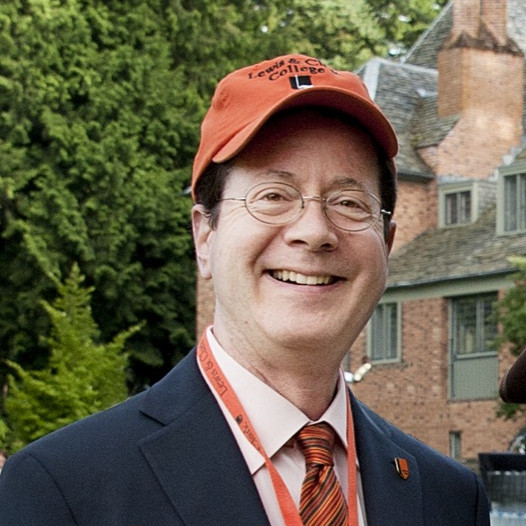Active Learning
Open gallery

Lewis & Clark students excel at what they know and what they do. But sometimes, like any of us, they need a nudge to explore things outside their comfort zones, outside their usual areas of achievement. That push is a vital part of the educational experience we provide, and it’s something we should talk about more often.
Understandably, some students are reluctant to venture from safe harbor. They may fear ridicule or, worse, failure by trying something new. I know the feeling. In college, I once almost walked away from a job—and its critical financial support— because early on I was given an assignment I had no idea how to do. Thankfully, a patient manager showed me the ropes. I gained a mentor and a new sense of confidence.
So I’m always encouraging students to explore events and activities outside their field of study or beyond the realm of their known strengths. And we offer opportunities in abundance, beginning with our nationally acclaimed and academically provocative student-run symposia on a range of topics. These include our International Affairs Symposium, which this year marked its 50th edition with an overflow crowd.
I urge our athletes to view an art exhibition in the Hoffman Gallery; I encourage our musicians to cheer on the Pios at Griswold or in Pamplin; and I ask our scientists to attend a play in the Black Box. Occasionally, I hope they find themselves confused and disoriented—a feeling similar, in fact, to what many accomplished high school graduates experience when they first walk into a classroom on Palatine Hill: “This is way harder than I thought.”
That confusion forces concentration, which then leads to clarity and, in time, to confidence. Whether in the classroom, the studio, the lab, or the athletic field, the lines between the intellectual and the physical, the creative and the analytical, the sensory and the tangible, are too often self-drawn and self-limiting. One of the great things about our small and personal learning community is its incredible culture of support for trying new things.
Even in our graduate and law schools, where students are working toward specific careers, we encourage them to move beyond what is comfortable and familiar. To deepen their knowledge and sharpen their skills, students take what they learn in class and test it and themselves in our professional clinics and centers. Nothing so focuses a law student’s mind as preparing for a moot court trial or helping a client negotiate the intricacies of establishing a small business. Nothing so tests an aspiring teacher’s conviction as standing before a class of skeptical students for the first time.
Betsy and I delight not only in attending as many different kinds of campus events as we can, but also in taking trustees, alums, neighbors, and other friends of the college with us. We love supporting—and showing off—our students, faculty, and staff in their many endeavors, and we always learn something new in the process.
Whether you’re an alum, parent, or friend, whether you live in Portland or are visiting, come to campus and see for yourself how our students breathe life and spirit into athletics, the arts, and a host of other areas. They stretch their limits in amazing ways. They’ll stretch yours, too.
During a campus tour with prospective students and their parents, one of our admissions guides summed up Lewis & Clark’s eclectic culture particularly well: “The great thing here is that we’re not just about the academics. You can get involved in more things than you can possibly understand.”
Exactly.
-Barry Glassner
President
More L&C Magazine Stories
Lewis & Clark Magazine is located in McAfee on the Undergraduate Campus.
MSC: 19
email magazine@lclark.edu
voice 503-768-7970
fax 503-768-7969
The L&C Magazine staff welcomes letters and emails from readers about topics covered in the magazine. Correspondence must include your name and location and may be edited.
Lewis & Clark Magazine
Lewis & Clark
615 S. Palatine Hill Road MSC 19
Portland OR 97219

